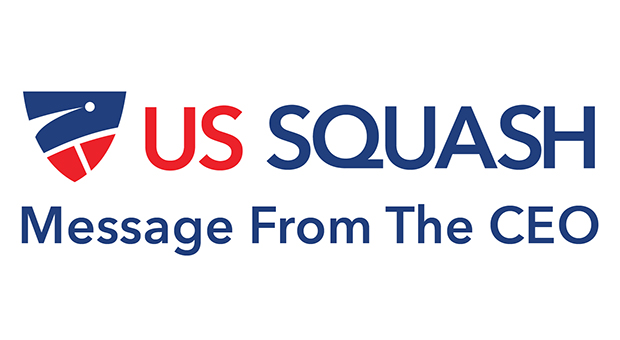Last week, seemingly out of nowhere, my seven-year-old son asked me, “Am I part of the squash community?” His younger sister quickly added, “Yeah, am I part of the squash cunoonity too?” I am fairly sure my son just wanted to know if he was in Club Locker, so he could look himself up in Player Tracker; however, kids have a funny way of bringing a certain focus to life.
This time of year, as many of us have just sent our kids back to school, we are reminded of the values we wish to instill in them. This is because we hope the teachers, coaches and administrators of their schools share and reinforce these same values. Kids spend most of their time in school or extracurricular activities, so a clear sense of values consistently communicated to them in those contexts helps them learn how to be socially flexible, emotionally stable and willing to challenge themselves.
Courtesy, fairness and respect are enduring values squash helps teach. Simply playing squash reinforces these values, whether in practice or competition. Squash relies on them since the fair outcome of any match is ultimately in the hands of the players on court.
Subtly and not so subtly, society can erode core values, making it even more essential for us all to be involved in communities and environments that provides loud and clear messages on what is appropriate and not appropriate. How we live, work and ultimately respond to the daily challenges that life throws our way are how we demonstrate our level of commitment to our own priorities in life. If you’re like me, you enjoy being with your family, spending time together and watching your children become their own people as they explore their own internal motivations. We want our children to be in an environment and a culture where there are strong role models for how to behave. As parents, we know that it’s a daily challenge to model our own values to our children. Being involved in a community and a sport that cultivates good values helps. Part of the special nature of the squash community is rooted in the connection between what we as members of the community communicate about our values and how the community itself behaves.
Since competition adds intensity to any situation, our daily challenge in squash comes in the form of how we react to rankings, seedings, the draws, and like in any sport, even the quality of refereeing. All are potential sources of a perceived injustice—an affront to what’s fair for all of mankind. As humans, we’re always looking out for our own interests, frequently to the exclusion of any broader context.
In US Squash’s elite development programs, we frequently talk to juniors and coaches about what it means to be personally responsible and the role sportsmanship plays in squash. We also work hard to create a culture that is consistent with these values. Of course, these messages don’t just apply to elite athletes—they are equally valuable for all juniors, adult players, parents and coaches. Further, as the national governing body, it’s essential that we also operate according to these values, with integrity and being fully accountable.
In the end, for ourselves, for our children, we want to be socially, emotionally and physically fit as adults. So yes, my kids are part of the squash ”cunoonity.” Now, more than ever, it seems clear that we all have a role in making this possible.












